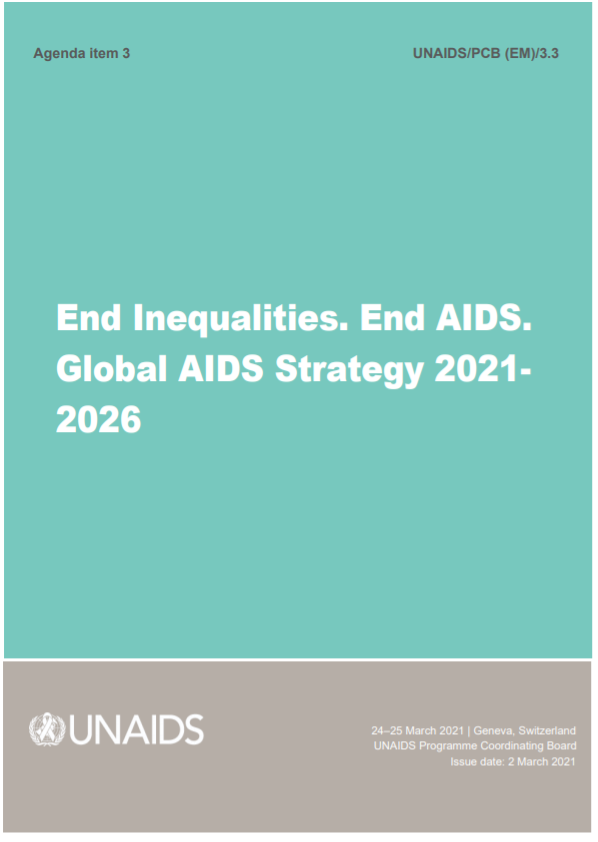W4GF are excited to see the new UNAIDS strategy End Inequalities. End AIDS. Global AIDS Strategy 2021-2026, published on 2 March 2021, which will be presented to the PCB later this month.
As part of the W4GF Strategy Development working group we included the UNAIDS strategy given that the Global Fund’s Strategy is aligned to existing international targets from partners such as UNAIDS among others. Click here to see what was submitted to UNAIDS in August 2020.
An urgent, strategic course correction is needed to get the global HIV response back on-track. The Global AIDS Strategy 2021–2026 builds on lessons from the previous Strategy. It is guided by human rights principles, norms and standards, commitments to achieve gender equality, and approaches that put communities at the centre of the global response. The Strategy aims to address the specific factors that have slowed progress and caused the response to fail the people who are most vulnerable to HIV, especially those who are experiencing social, economic, racial and/or gender inequality.

The strategy has three priorities:
- Strategic Priority 1: Maximize equitable and equal access to HIV services and solutions.
- Strategic Priority 2: Break down barriers to achieving HIV outcomes
- Strategic Priority 3: Fully resource and sustain efficient HIV resposes and integrate them into the systems for health, social protection, humanitarian settings and pandemic responses
Women4GlobalFund (W4GF) is excited for the following key points in the strategy:
- Scale up and fully resource community-led service delivery and monitoring (pg. 41). There is also a new target to have 80% of service delivery for HIV prevention programmes for key populations and women to be delivered by community-, key population- and women-led organizations.
- Introduce a new “10-10-10” strategy (whereby less than 10% of countries have punitive legal and policy environments that lead to the denial or limitation of access to services; Less than 10% of people living with HIV and key populations experience stigma and discrimination; and Less than 10% of women, girls, people living with HIV and key populations experience gender-based inequalities and all forms of gender-based violence) (pg. 41).
- foster and expand partnerships with the Global Fund, PEPFAR and other bilateral and multilateral partners for collective leadership and alignment of actions and resources that can advance equitable policies and programmes and tailored responses that reach those furthest behind first; (pg. 75).
